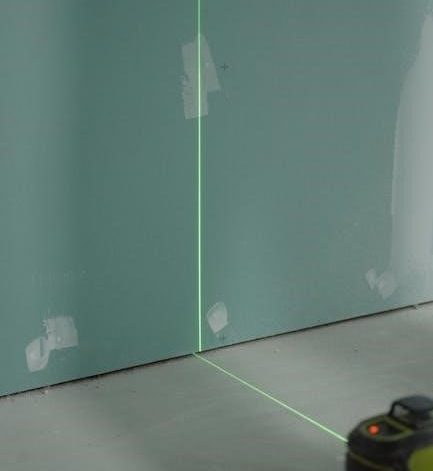Understanding the Role of a Probate Referee
A probate referee is a court-appointed expert responsible for appraising non-cash assets in an estate. They ensure fair market value determination, prepare detailed inventories, and facilitate smooth probate processes.
1.1 Overview of a Probate Referee’s Duties
A probate referee’s primary duty is to appraise non-cash assets in an estate, ensuring fair market value determination. They prepare detailed inventories, assess property values, and submit reports to the court. Referees work closely with executors and attorneys to facilitate the probate process, ensuring compliance with legal standards. Their expertise helps avoid disputes and ensures accurate asset valuation, making them essential for efficient estate administration.
1.2 Why a Probate Referee is Necessary
A probate referee is essential to ensure fairness and accuracy in estate valuation. They prevent conflicts by providing impartial appraisals, ensuring all parties trust the process. Referees bring expertise in assessing complex assets, reducing legal disputes and delays. Their role streamlines the probate process, making it more efficient and cost-effective. By ensuring compliance with legal standards, referees protect the estate’s interests and facilitate smooth distribution of assets.

The Appointment Process of a Probate Referee
A probate referee is appointed by the court to ensure impartial appraisals of estate assets. Their role is to provide accurate valuations and maintain fairness in probate proceedings.
2.1 How Probate Referees are Appointed
Probate referees are appointed by the court or state authorities to ensure impartial appraisals. In California, the State Controller appoints them based on certifications and expertise. The process involves selecting qualified professionals with experience in appraisals, ensuring their work meets legal standards. Their role is to provide accurate valuations of estate assets, maintaining fairness and transparency in probate proceedings.
2.2 Qualifications and Requirements for Probate Referees
Probate referees must meet specific qualifications, including extensive experience in appraisals and expertise in valuing various assets. They are typically certified professionals with a strong understanding of market trends and legal standards. In California, they are appointed by the State Controller, ensuring their reliability and impartiality. Their role demands accuracy, fairness, and adherence to probate laws, making them essential for efficient estate administration.
Responsibilities of a Probate Referee
A probate referee appraises non-cash assets, prepares detailed inventories, and ensures accurate valuations. Their work is impartial, facilitating fair estate administration and adherence to legal standards.
3.1 Appraisal of Non-Cash Assets
A probate referee is tasked with appraising non-cash assets, such as real estate, businesses, and personal property, to determine their fair market value. This process ensures accurate asset valuation, which is critical for estate administration and tax purposes. The referee’s appraisal is impartial and detailed, providing a reliable basis for estate distribution and settlement. Their expertise in valuation helps avoid disputes and ensures compliance with legal requirements. This step is essential for the smooth progression of probate proceedings.
3.2 Preparation of the Inventory and Appraisal
The probate referee is responsible for compiling a detailed inventory of the estate’s assets and assessing their fair market value. This document, known as the Inventory and Appraisal, is a critical component of the probate process. It includes descriptions of each asset, their condition, and estimated values. The referee ensures accuracy and completeness, which is essential for tax calculations, creditor payments, and fair distribution of assets among beneficiaries. The finalized document is submitted to the court for approval.

The Probate Process and the Referee’s Role
A probate referee plays a crucial role in the probate process by appraising non-cash assets and preparing an inventory. Their work ensures fair market values, aiding in tax calculations and asset distribution.
4.1 When is a Probate Referee Needed?
A probate referee is typically required when an estate includes non-cash assets that need appraisal, such as real estate, businesses, or personal property. They are essential when there are disputes over asset values or when the estate requires an independent, unbiased valuation to ensure fairness and compliance with legal standards. The referee’s expertise is crucial for accurate and reliable appraisals, which are vital for tax calculations and proper distribution of assets.
4.2 The Probate Referee’s Interaction with the Estate
The probate referee interacts with the estate by conducting independent appraisals of non-cash assets, ensuring fair market values are determined. They work closely with executors or administrators to prepare accurate inventories and appraisals, which are submitted to the court. The referee’s role is impartial, focusing on providing reliable valuations that comply with legal standards. Their involvement helps prevent disputes and ensures the estate is distributed fairly, maintaining the integrity of the probate process.
Costs Associated with a Probate Referee
Probate referee fees are generally low and cover the cost of appraisals. These fees are typically set by the court and vary based on the estate’s complexity.
5.1 Understanding the Fees and Charges
Probate referees are court-appointed professionals whose fees are set by the court to ensure fair compensation for their appraisal services. These fees typically cover the evaluation of non-cash assets, such as real estate and personal property, to determine their fair market value. The costs are influenced by the complexity and value of the assets involved. While the fees vary, they are generally reasonable and transparent, ensuring that the estate covers necessary expenses without undue financial burden. Additional charges may apply based on specific requirements of the appraisal process.
5.2 Factors Influencing the Cost of a Probate Referee
The cost of a probate referee is influenced by the complexity and value of the estate’s assets. Larger estates with diverse holdings, such as real estate or businesses, typically incur higher fees due to the time and expertise required for appraisal. Additionally, the referee’s qualifications and demand for their services can impact pricing. Geographic location may also play a role, as regional rates vary. These factors ensure that costs align with the specific needs of the estate being administered.
How to Work with a Probate Referee
Understand their role, communicate clearly, and provide necessary documentation. Ensure timely updates and maintain open dialogue to facilitate efficient appraisal and inventory preparation.
6.1 Steps to Appoint a Probate Referee
To appoint a probate referee, file a petition with the court, requesting their expertise. Attach required documentation, including estate details and asset lists. The court reviews the request, selects a qualified referee, and issues an appointment order. Once appointed, the referee begins appraisals, ensuring compliance with legal standards. This streamlined process guarantees impartial and accurate valuations, aiding in the estate’s efficient administration.
6.2 Effective Communication with the Referee
Maintaining clear communication with the probate referee is crucial for a seamless process. Provide all necessary documents promptly and address queries thoroughly. Regular updates ensure transparency and help the referee deliver accurate appraisals. Open dialogue fosters trust and efficiency, making the probate process less cumbersome for all parties involved. This collaboration ensures the referee’s work aligns with the estate’s needs and legal requirements.
The California Probate Referee System
The California Probate Referee system provides independent, reliable appraisals of estate assets. Appointed by the State Controller, referees ensure fair valuations, offering low-cost and efficient services to estates.
7.1 Overview of the California Probate Referees Association
The California Probate Referees Association is a professional organization supporting probate referees. It offers resources, guidelines, and training to ensure accurate appraisals. The association promotes efficiency and fairness in probate processes, providing essential tools for referees to perform their duties effectively. Their work is crucial for maintaining integrity in estate valuations and streamlining probate court operations statewide.
7.2 Services Offered by the California Probate Referees
California probate referees provide independent appraisals of estate assets, including real estate, businesses, and personal property. Their services ensure accurate valuations, preparing detailed inventories and appraisals for probate courts. They also offer expert testimony when disputes arise. Referees adhere to strict legal standards, delivering reliable and unbiased assessments. Their work streamlines the probate process, ensuring fairness and transparency for all parties involved.
Benefits of Using a Probate Referee
Probate referees provide independent, reliable appraisals, ensuring fair asset valuation. Their expertise streamlines the probate process, saving time and costs while maintaining transparency and accountability.
8.1 Independent and Reliable Appraisals
Probate referees deliver impartial and accurate valuations of estate assets, free from personal or financial conflicts. Their expertise ensures that appraisals are conducted fairly, providing reliable results that all parties can trust. This independence is crucial for maintaining the integrity of the probate process and resolving potential disputes efficiently.
8.2 Time and Cost Efficiency
Probate referees streamline the estate valuation process, saving time and reducing costs. Their efficient appraisals prevent delays, minimizing estate expenses. By ensuring accurate and timely assessments, referees avoid prolonged legal disputes, allowing for faster asset distribution. This cost-effectiveness is a key benefit, as their fees are often a fraction of the expenses incurred through delays or contested valuations.

Common Mistakes to Avoid When Dealing with a Probate Referee
Not understanding the scope of the referee’s work can lead to delays or incomplete appraisals, highlighting the importance of clear communication and preparation.
9.1 Delaying the Appointment Process
Delaying the appointment of a probate referee can lead to legal complications, extended timelines, and increased costs. It is crucial to act promptly to ensure the probate process remains efficient and avoids unnecessary delays. Proper planning and early engagement with a probate referee help maintain smooth estate administration and prevent potential conflicts or financial penalties. Timely action is essential for a hassle-free probate experience.
9.2 Not Understanding the Scope of the Referee’s Work
Not understanding the scope of a probate referee’s work can lead to confusion, disputes, or mismanagement of estate assets. The referee’s role is to provide independent, accurate appraisals of non-cash assets and prepare detailed inventories. Misconceptions about their responsibilities can result in delays, additional costs, or legal issues. It is essential to clearly understand their duties to ensure smooth estate administration and avoid potential conflicts. Reviewing the probate referee guide or consulting legal advice can help clarify their role and responsibilities.

Resources and Guides for Probate Referees
The California Probate Referees Association offers detailed guides, including the Probate Referee Guide, providing step-by-step instructions for appraisals, inventories, and estate administration best practices.
10.1 The Probate Referee Guide
The Probate Referee Guide, published by the California Probate Referees Association, serves as a comprehensive resource for understanding the appointment process, duties, and procedures. It outlines steps for preparing inventories, appraisals, and ensuring compliance with legal standards. The guide also offers practical advice for effective communication with referees and navigating the probate system efficiently. It is an essential tool for executors, administrators, and legal professionals involved in estate administration.
10.2 Additional Online Resources
Beyond the Probate Referee Guide, additional online resources include the California Probate Referees Association website, offering detailed procedures and appointment guidelines. Google’s advanced search function can help locate specific probate documents. Official probate court portals provide access to forms and fee structures. Legal aid websites and dictionaries like Google Translate also assist with terminology and language barriers, ensuring comprehensive support for navigating the probate process efficiently.
A probate referee ensures fair asset valuation and efficient estate administration, playing a crucial role in upholding legal standards and providing reliable appraisals for smooth probate proceedings.
11.1 Summary of Key Points
A probate referee is a court-appointed expert who ensures fair and accurate asset valuation, preparing detailed inventories and appraisals. Their role is crucial for efficient estate administration, providing transparency and compliance with legal standards. The guide emphasizes their independence, reliability, and cost-effectiveness, making them indispensable in probate proceedings. Understanding their responsibilities and benefits helps stakeholders navigate the process smoothly, ensuring estates are managed fairly and efficiently.
11.2 Final Thoughts on the Importance of Probate Referees
Probate referees play a vital role in ensuring fair and efficient estate administration. Their expertise in appraising assets and preparing accurate inventories safeguards the integrity of the probate process. By providing independent and reliable evaluations, they protect the interests of all parties involved. Their contributions not only streamline legal proceedings but also uphold the principles of fairness and transparency, making them an indispensable asset in probate matters.




